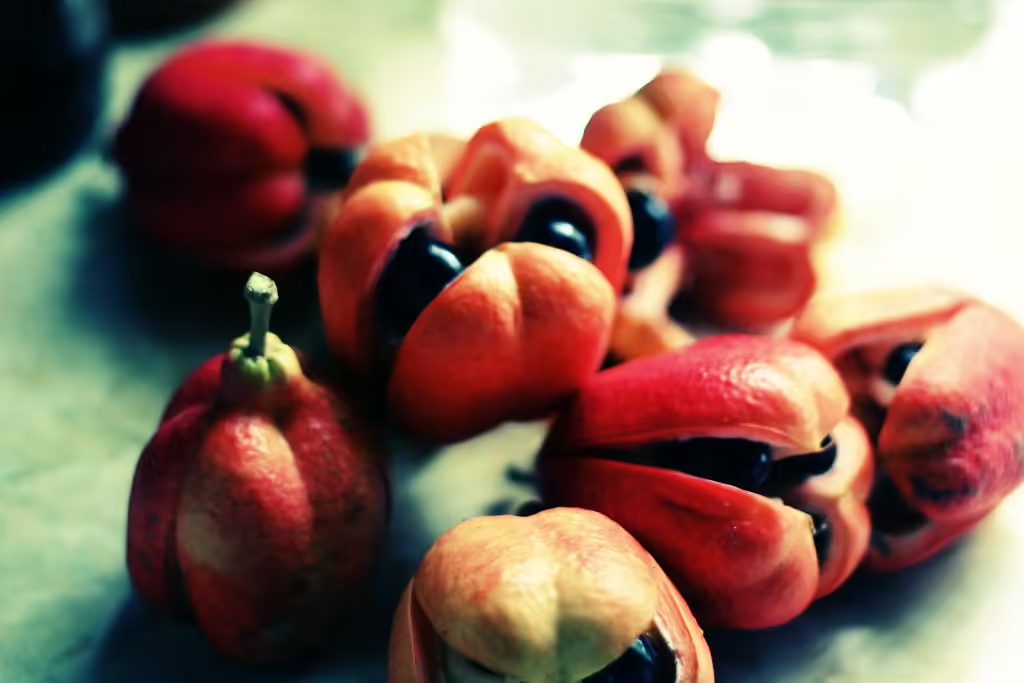Table of Contents
Talking about fruit confiscated by the government could cause controversy. The U.S. Food and Drug Administration reports that ackee, the national fruit of Jamaica, has been identified by the United States because it may be fatal to eat while it is still raw. The unripe fruit contains a toxin that can be fatal, so taking a bite off of it could be more than just bitter.
The ackee fruit is said to be tropical. It has become quite popular in Jamaica, to the point where it is now included in the national meal made with salt fish in that Caribbean island. The fruit is also produced in Grenada and Trinidad, two other nearby island nations.
The reasons behind the United States’ illegality of Jamaica’s national fruit.

South Florida is where ackee is grown in the United States. Alarms over the fruit, nevertheless, can damage its reputation in the US.
Anyone who imports fruit without a license faces the possibility of having their shipments detained in the United States, regardless of whether the fruit is canned, dried, fresh, or frozen. Should the fruit be removed from the FDA’s “green list” of authorized ackee products, exporters will need to petition the agency in order to import the fruit into the nation. As a result, authorities have made the fruit a national priority and are concerned about any unauthorized fruit transfers into the United States.
Hypoglycin A, A Potentially Lethal Toxin Found in Unripe Ackee
Significant concentrations of the harmful toxin hypoglycin A are found in the unripened section of ackee. The poison is categorized by the FDA as “heat stable,” which indicates that it will not perish while cooking. The poison is particularly dangerous to health because it is resistant to alteration or destruction at high temperatures, even when cooked.
The fruit’s seeds and rind, often known as peel, should not be consumed since they contain hypoglycin A. Ackee is safe to eat even when it contains up to 100 parts per million (ppm) of hypoglycin A, according to the FDA. Beyond that allocated quantity, nevertheless, it is dangerous.
The ripeness of the fruit determines how much toxin is present overall, although even in older apples, the peel and seeds still contain high levels of hypoglycin.
Ackee that has ripened and been “properly processed” is safe to eat, according to the FDA. When the rind is hard, yellow, and has a vivid crimson interior, the fruit is ripe. Additionally, the mature fruit will include arils—pale yellow portions that are edible—that naturally open out in split halves. Hard, black seeds adorn the arils. Fruit is dangerous and deadly if it stays closed or has discolored arils. You should only use this rice method to ripen fruit like mango and avocado, not ackee, as any artificially ripened ackee is similarly dangerous.
Toxins in Immature Ackee Cause a Range of Symptoms
Ackee presents serious health dangers if it is not fully ripened. If consumed, the immature fruit can cause hypoglycemia, low blood sugar, and other serious problems that impair the body’s capacity to operate normally. Confusion, headaches, dizziness, seizures, and comas are other symptoms of hypoglycemia that may have long-term negative implications.
Severe vomiting and liver damage can also result from eating unripe ackee. The FDA cautions that eating any amount of ackee, whether ripe or unripe, can be exceedingly dangerous for women who are pregnant or nursing. Children should never consume unripe ackee since they are more susceptible to its negative effects. The FDA advises erring on the side of caution because there is a dearth of reliable information regarding the effects that ripened avocado may have on unborn infants and pregnant women. Many people must be aware of the risks since they cook and prepare matured ackee or pair the exotic fruit prevalent in tropical climates with fish as a delicacy.
read also: 8 Raw Foods You Should Consume
read also : Do ribs need to be rinsed before cooking? An expert gives his opinion
read also : Do ribs need to be rinsed before cooking? An expert gives his opinion
Jamaica’s national fruit. Jamaica’s national fruit. Jamaica’s national fruit. Jamaica’s national fruit. Jamaica’s national fruit. Jamaica’s national fruit. Jamaica’s national fruit. Jamaica’s national fruit. Jamaica’s national fruit.
Why The National Fruit Of Jamaica Is Illegal In The U.S. (msn.com)


1 thought on “The reasons behind the United States illegality of Jamaica’s national fruit.”